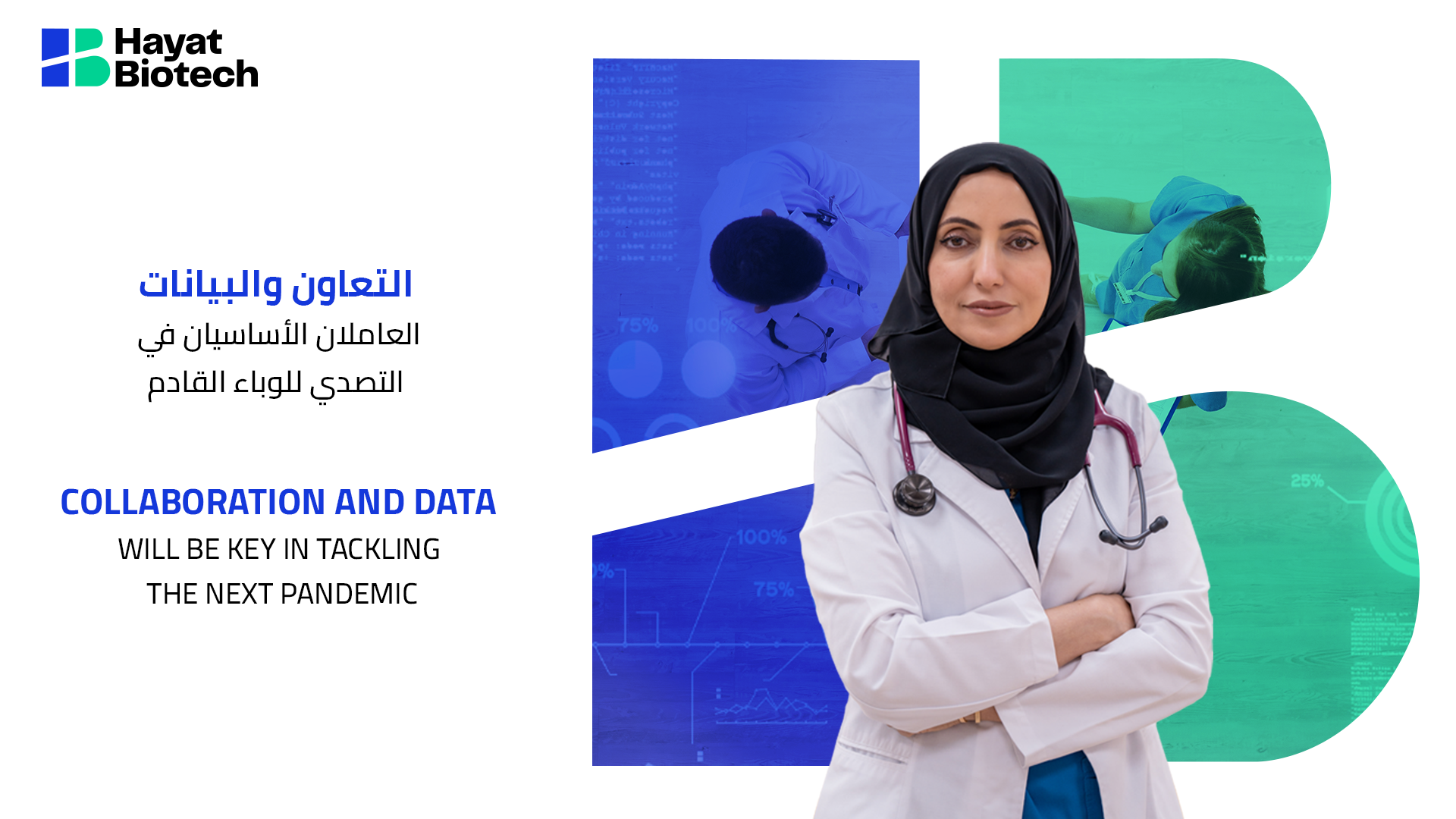By Dr. Nawal Al Kaabi, Senior Medical Advisor at Hayat Biotech, a leading UAE-based biotechnology and life sciences company.
Earlier this month, the World Health Organization officially declared that COVID-19 no longer represents a global health emergency. While its emergency status may be over, this is not the time to put our foot on the breaks. Time is of the essence to ensure we are prepared for future pandemics.
At Hayat Biotech, we recognize that this is not the time to let our guard down; the threat of COVID-19 is still evidently present and has become part of the common respiratory conditions people face. COVID-19, which is an RNA virus, will continue to have mutations. This has been the case over the past three years and means that any change to the virus needs to be monitored closely since the development of future vaccines and treatments will be based on the new unique properties that the virus develops. Moreover, continuing to monitor cases and their severity will play a major role in categorizing COVID-19 as either a common cold illness or one that will continue to have the potential to seriously impact high-risk individuals.
We believe that leveraging the knowledge gained from the pandemic is elemental for us to find new preventive measures for future outbreaks. It supports us in managing scarce resources more efficiently and drives us to conduct further research and clinical trials to fight the possibility of new variants emerging. A major lesson learned from COVID-19 was the pressing need for global data and resource sharing to have a more profound impact on the health of population, especially in the context of developing countries. Moreover, continuous monitoring of cases and emerging trends can help provide effective global strategies for preparedness efforts.
The landscape we are a part of also largely contributes to future pandemic preparedness. The UAE has solid measures in place to bolster its resilience in the face of future threats, this includes the implementation of COVID-19 surveillance, similar to how influenza and other respiratory viruses are monitored, as well as being vigilant in its close observation of the rising number of COVID-19 cases. Moreover, through its collaborative international standing, the UAE is constantly in communication with key global players where data is shared on emerging trends and genetic sequencing.
For Hayat Biotech, we plan to build on our legacy of producing the first COVID-19 vaccine in the Arab World, Hayat-Vax, which was officially registered by the UAE Ministry of Health and Prevention (MOHAP) on 9th December 2020. In terms of ensuring equitable access to vaccines and healthcare services to the citizens and residents of the UAE and beyond, Hayat Biotech took initiative and established its very own state-of-the-art ‘Life Sciences Park’ facility in the Khalifa Economic Zones Abu Dhabi (KEZAD) dedicated to the production of vaccines with a capacity to provide 200 million vials per year. We also have plans in place to continue educating our healthcare professionals on herd immunity, protective healthcare measures and the importance of vaccines and clinical trials.
Looking ahead, being future-ready for potential pandemics means general precautions need to be followed which includes maintaining optimal cough etiquette, abiding by best practices of having those that are feeling sick stay at home and avoid visiting the elderly or those with immune deficiencies in times when the flu season is active. From an innovative standpoint, integrating technological practices into our solution-oriented mindset is paramount. With the rising presence of Artificial Intelligence (AI), key players in the healthcare sector can leverage its potential and bring value to its offering through faster processing of drug development and decentralized clinical trials.
To conclude, being agile and strategically responsive through data-backed insights can truly elevate the manner in which health pandemics are handled. Through global data sharing and an open and collaborative approach, we are able to better predict and prevent future outbreaks that have a similar intensity. Working together helps us have proactive and effective measures in place to mitigate the risks we could potentially face so that our communities can thrive and be in better health for generations to come.


